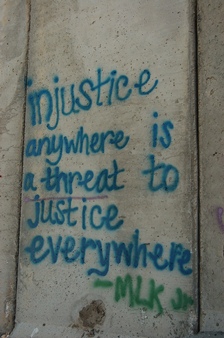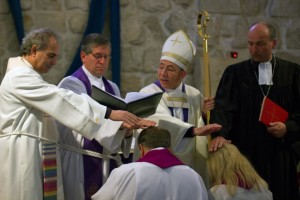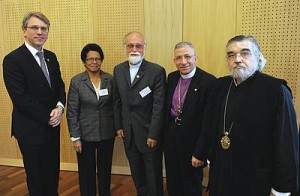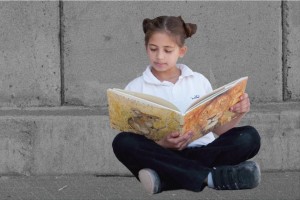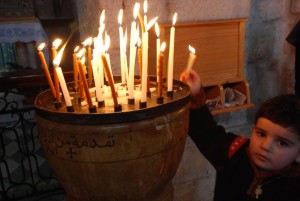In their Easter message, the Heads of Churches in Jerusalem “call upon all Christians from around the ecumenical world to come and visit with our churches and walk with the living stones of the Holy Land in the footsteps of our risen Lord.” If you are interested in responding to this call take a look at Peace Not Wall’s resources for traveling to the Holy Land.
Below is the full text of the Easter message:
“He is not here; he has risen, just as he said.
Come and see the place where he lay.” Matthew 28:6
We, the Patriarchs and Heads of Churches in Jerusalem, bless our faithful people in this region and the people of God everywhere in the name of the risen Lord and Saviour, Jesus Christ.
Each year the Church calls us to celebrate the death and resurrection of Jesus Christ through Divine Liturgies and Paschal ceremonies and gatherings. The Church in the Holy Land offers what no other church around the world can offer – Pilgrimage in the land where it all happened. Through many prayers, fasts, and holy journeys, this land we call Holy became a fifth gospel. Indeed, our Easter greetings come from the heart of the City of Hope, Resurrection and the Empty Tomb.
As Heads of Churches in Jerusalem, we call upon all Christians from around the ecumenical world to come and visit with our churches and walk with the living stones of the Holy Land in the footsteps of our risen Lord. And for those who are not able to make their pilgrimage to the Holy Land, we appeal to them to hold the peoples of this land in their prayers, particularly the Christian presence that keeps dwindling and faces existential challenges throughout the Middle East.
The holy fire on Holy Saturday and Easter Vigil remind us, and the entire world, of the ‘Light of the Risen Lord’, which illumines the whole world, even in the darkest places of the earth. Our world today is full of false idols that separate people from the light of Christ and the truth of his Gospel. The Christian presence here in the Mother City of our faith continues to serve as a beacon of light of the risen Christ, which the first disciples witnessed here at the empty sepulcher in Jerusalem.
As a continued witness of the resurrection, the Church in the Holy Land urges all people of faith and goodwill around the world, especially those in authority, to strive for justice and peace among the nations. In particular, pray with us for the situation in Syria; in Lebanon; in Palestine and Israel; in Egypt; in Iraq, and wherever there is political unrest. Pray for all victims of violence and oppression, for prisoners, for those who live with the lack of security, and those who are displaced and refugees, especially here in our land.
May the light of the risen Lord shine upon the whole world and in our region, and may we all be raised with Christ into life victorious. Alleluia, Christ is Risen! He is Risen indeed.
Alleluia!
Patriarch Theophilos III, Greek Orthodox Patriarchate
Patriarch Fouad Twal, Latin Patriarchate
Patriarch Norhan Manougian, Armenian Apostolic Orthodox Patriarchate
Very Rev. Pierbattista Pizzaballa, ofm, Custos of the Holy Land
Archbishop Anba Abraham, Coptic Orthodox Patriarchate, Jerusalem
Archbishop Swerios Malki Murad, Syrian Orthodox Patriarchate
Aba Fissiha Tsion, Locum Tenens of the Ethiopian Orthodox Patriarchate
Archbishop Joseph-Jules Zerey, Greek-Melkite-Catholic Patriarchate
Archbishop Moussa El-Hage, Maronite Patriarchal Exarchate
Bishop Suheil Dawani, Episcopal Church of Jerusalem and the Middle East
Bishop Munib Younan, Evangelical Lutheran Church in Jordan and the Holy Land
Bishop Pierre Melki, Syrian Catholic Patriarchal Exarchate
Msgr. Joseph Antoine Kelekian, Armenian Catholic Patriarchal Exarchate
Taken from Independent Catholic News website

